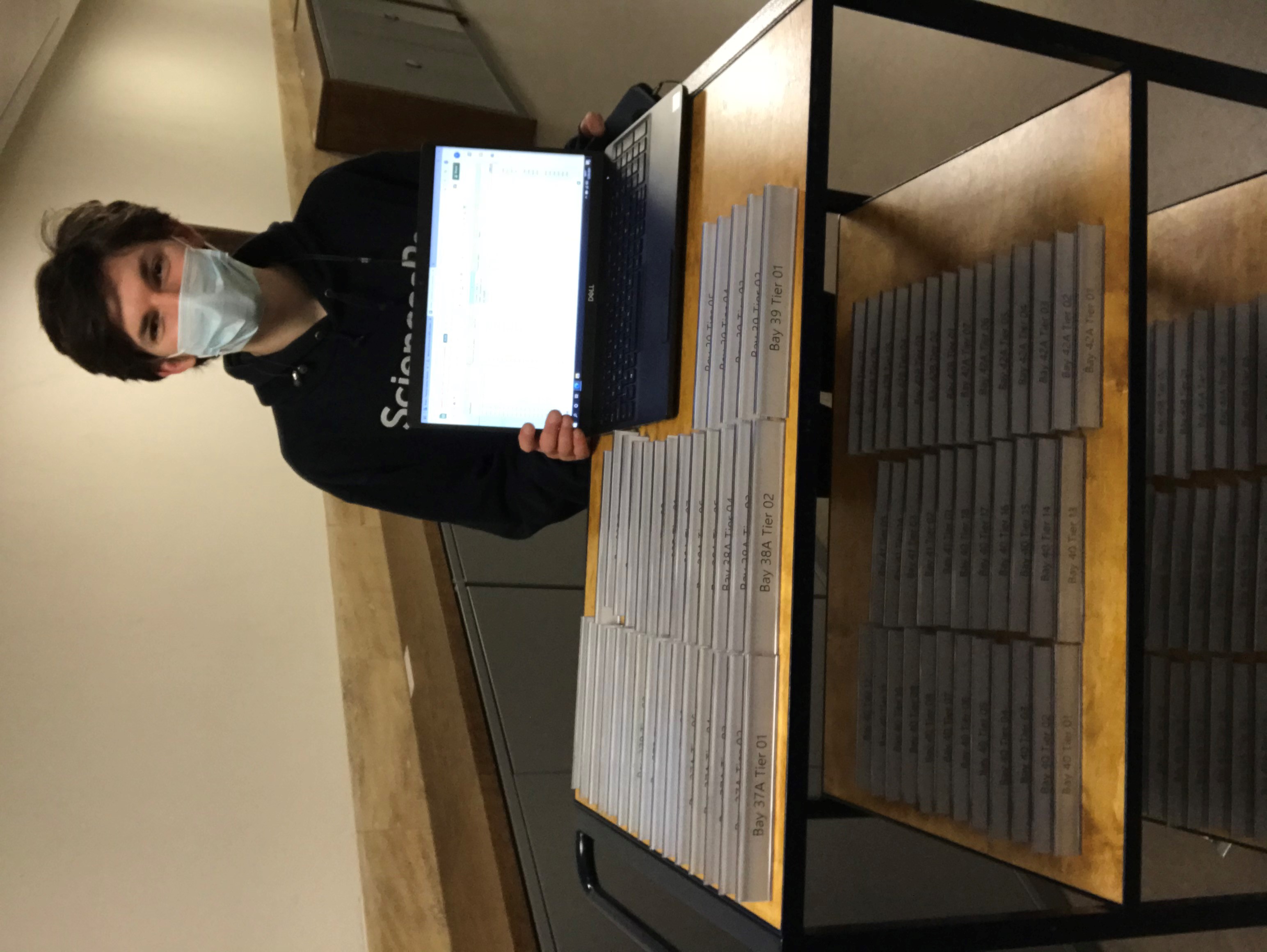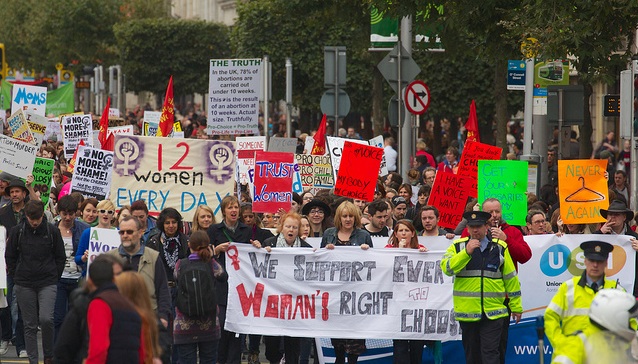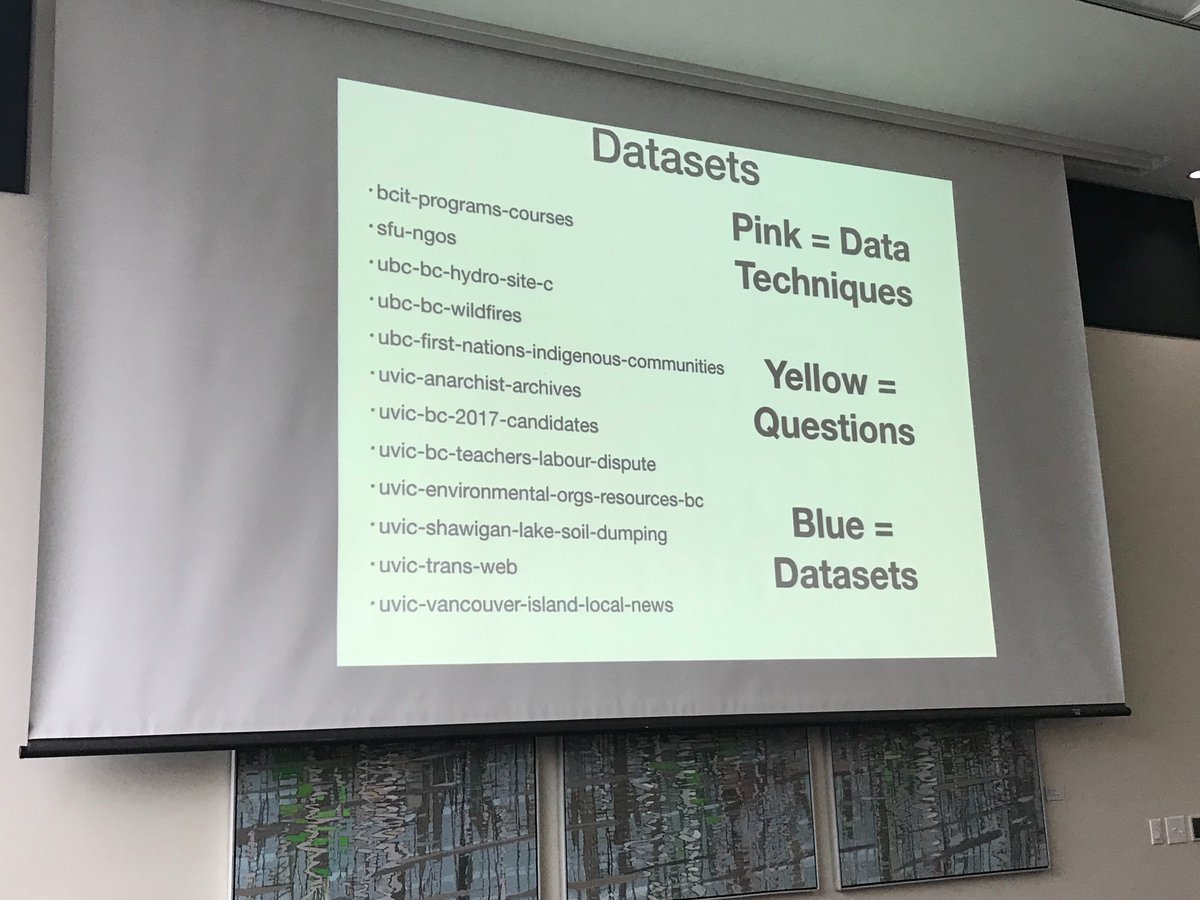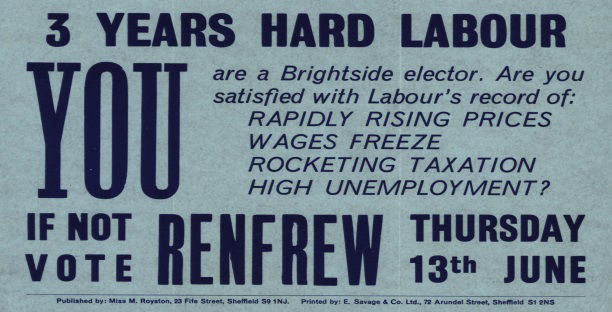Ahead of History Day 2018, in which the Bodleian will be in attendance, we thought we would explore the Bodleian Libraries Special Collections by asking our colleagues which items in the Special Collections are their favourites and why. The Bodleian Libraries’ Special Collections (at the Weston Library) holds the second largest collection of manuscripts and archives in Britain, the library holds collections in the following subject areas:
For a full breakdown of subjects see the Weston Library’s subject guides.
The following responses showcase the variety and depth of the materials held at the Bodleian, and also provide a unique insight into those that work with collections on a day to day basis.
Catherine McIlwaine, Archivist: Hodgkin’s Nobel Prize
Dorothy Hodgkin was an extraordinary chemist and x-ray crystallographer. During her long career at Oxford, as a Fellow at Somerville College, she determined the structure of penicillin, vitamin B12 and insulin. In 1964 she was awarded the Nobel Prize for Chemistry. She received the news when she was in Ghana visiting her husband, Thomas. They sent a telegram to their daughter, Liz, who was teaching at a school in Zambia, and to keep costs down, they sent the shortest possible message, ‘Dorothy nobel chemistry’!. She is still the only British female scientist to have received a Nobel Prize.
Telegram sent to Dorothy Hodgkin, 1964
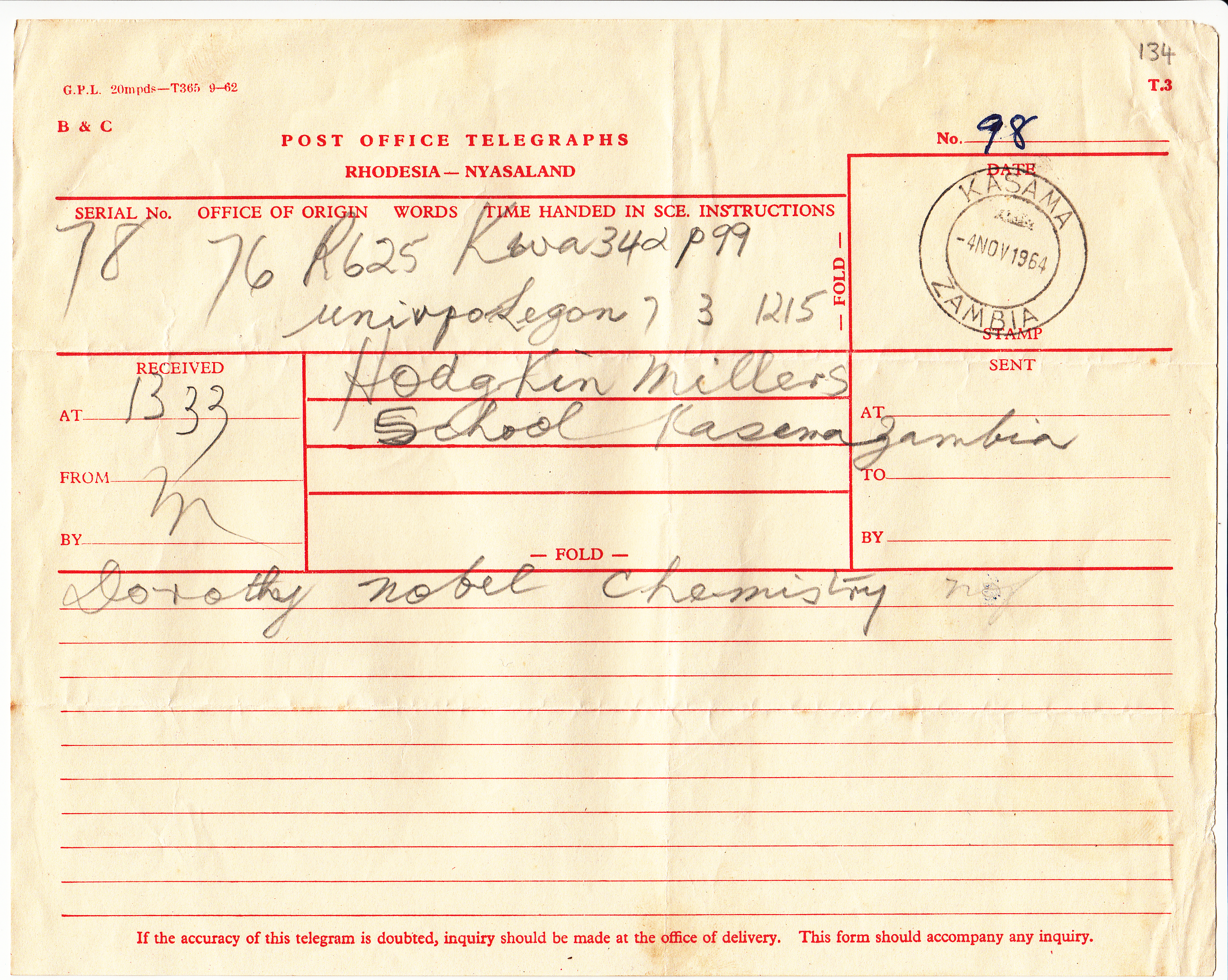
The Bodleian holds an extensive archive relating to her life and career and this telegram is part of an additional donation of family papers made in 2014 by her daughter Liz.
MS. Eng. c. 8262, fol. 134
Charlotte McKillop-Mash, Project archivist: Admiral Lord John Fisher’s letter
This is an August 1912 letter from 71-year old former first sea lord Admiral Lord John Fisher to Francis Hopwood, who was a senior civil servant serving as an additional civil lord of the Admiralty.
Fisher retired from the Admiralty in 1910 but kept himself busy by chairing a royal commission on fuel oil, strongly advocating for Britain to build more submarines, and firing off effusive and opinionated letters about rearmament. An unorthodox and radical reformer during his time in the Admiralty, Fisher was a ferociously energetic and outspoken man who, unsurprisingly, alienated plenty of his colleagues along the way.
Fisher was often outspoken in his opinions, which on occasion caused alarm. Perhaps the most notorious example was his recommendation to Edward VII in 1904 that the British should ‘Copenhagen’ the German fleet—that is, emulate the example of Nelson and attack the German fleet in Kiel before it grew too powerful [DNB]
In 1914 Winston Churchill, then first lord of the Admiralty, re-appointed Fisher as first sea lord.
The Letter reads:

Eng. c. 7351/4, fol. 48, recto
Dear Hopwood – Lane’s letter splendid! I’ve written to him. All our experts want shoving over the precipice! I heard one d-d fool the other day say “Well, thank God! We’ve not killed 15 men like the Nuremberg firm in experiments with internal combustion engines!” We ought to be heartily ashamed that we have not killed any one!
What we want is a real bloody war to re-invigorate us!
The real serious thing is that the Germans will have 14 vessels at sea with the Internal Combustion Engines before we have one, thus gaining inestimable experience. We are awfully behind!
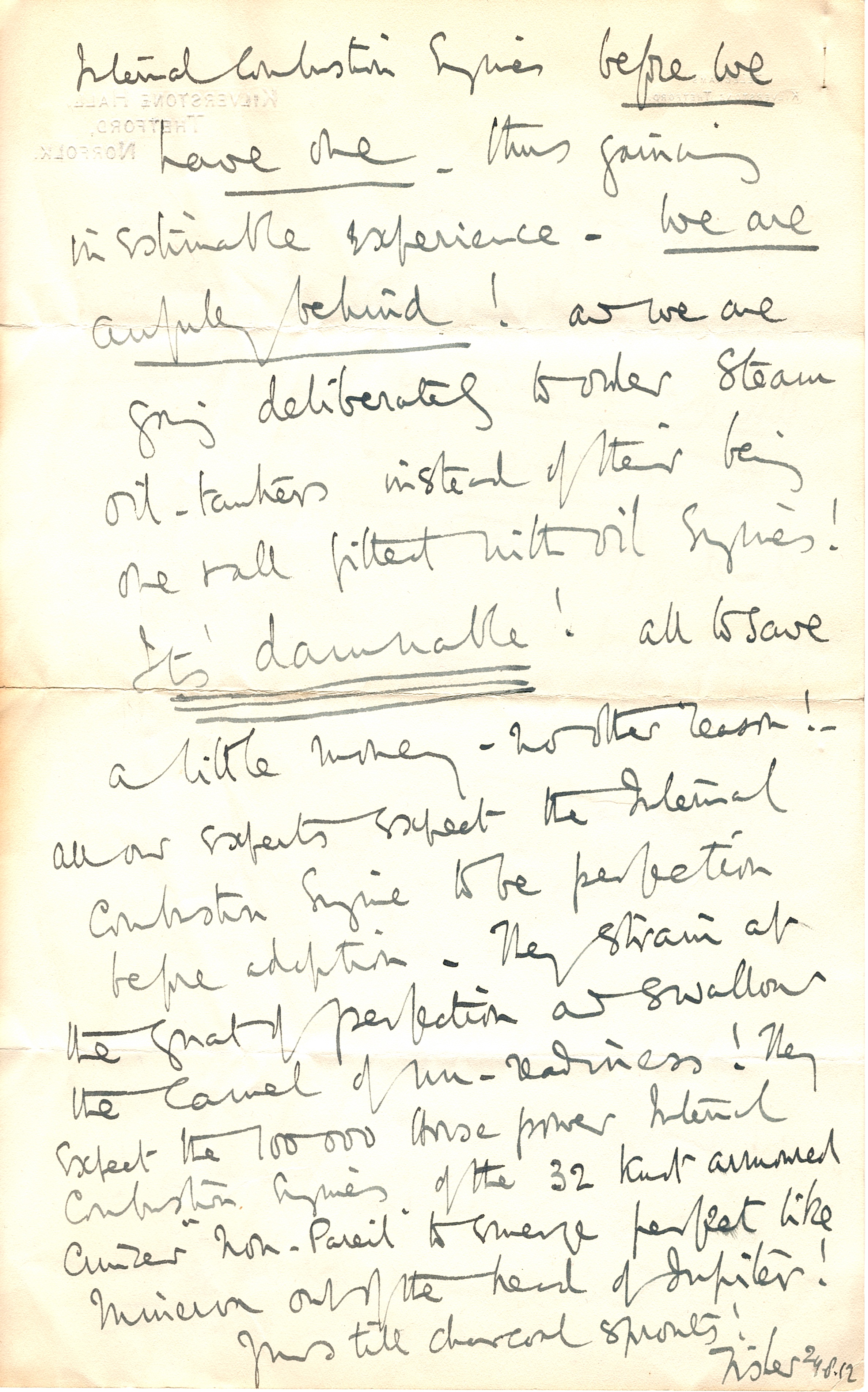
Eng. c. 7351/4, fol. 48, verso
And we are going deliberately to order steam oil-tankers instead of their being one & all fitted with oil engines! It’s damnable! All to save a little money – no other reason! All our experts expect the Internal Combustion Engine to be perfection before adoption. They strain at the gnat of perfection and swallow the camel of un-readiness! They expect the 100,000 Horse power Internal Combustion Engines of the 32 knot armoured cruiser “Non-Pareil” to emerge perfect like Minerva out of the head of Jupiter!
Yours till charcoal sprouts!
Fisher 24.8.12
The letter can be found in the Papers of Francis John Stephens Hopwood, Baron Southborough, 1737-1945. Shelfmark: Eng. c. 7351/4, fol. 48
Jeremy Mcllwaine, Senior Archivist: Conservative Party’s Official Christmas Card, 1938
My favourite item is from the Conservative Party Archive, it is the Conservative Party’s official Christmas card from 1938, when the Party was riding high in the polls on the back of Chamberlain’s success in preventing war over Czechoslovakia in September 1938, and features a facsimile of the supplementary agreement reached between Chamberlain and Hitler at Munich on 30th September, 1938.
Conservative Party’s Official Christmas Card, 1938 featuring Neville Chamberlain and Adolf Hitler
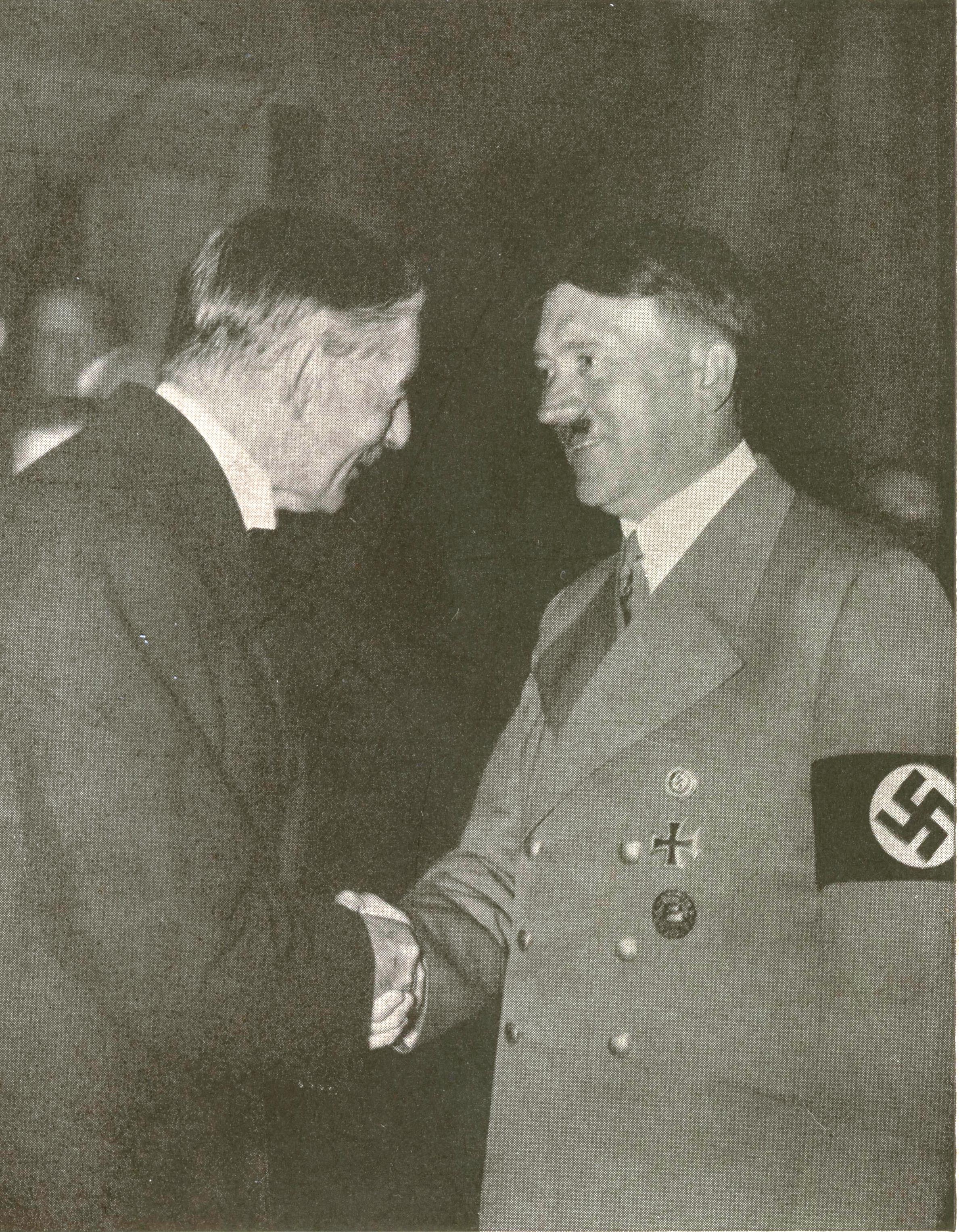
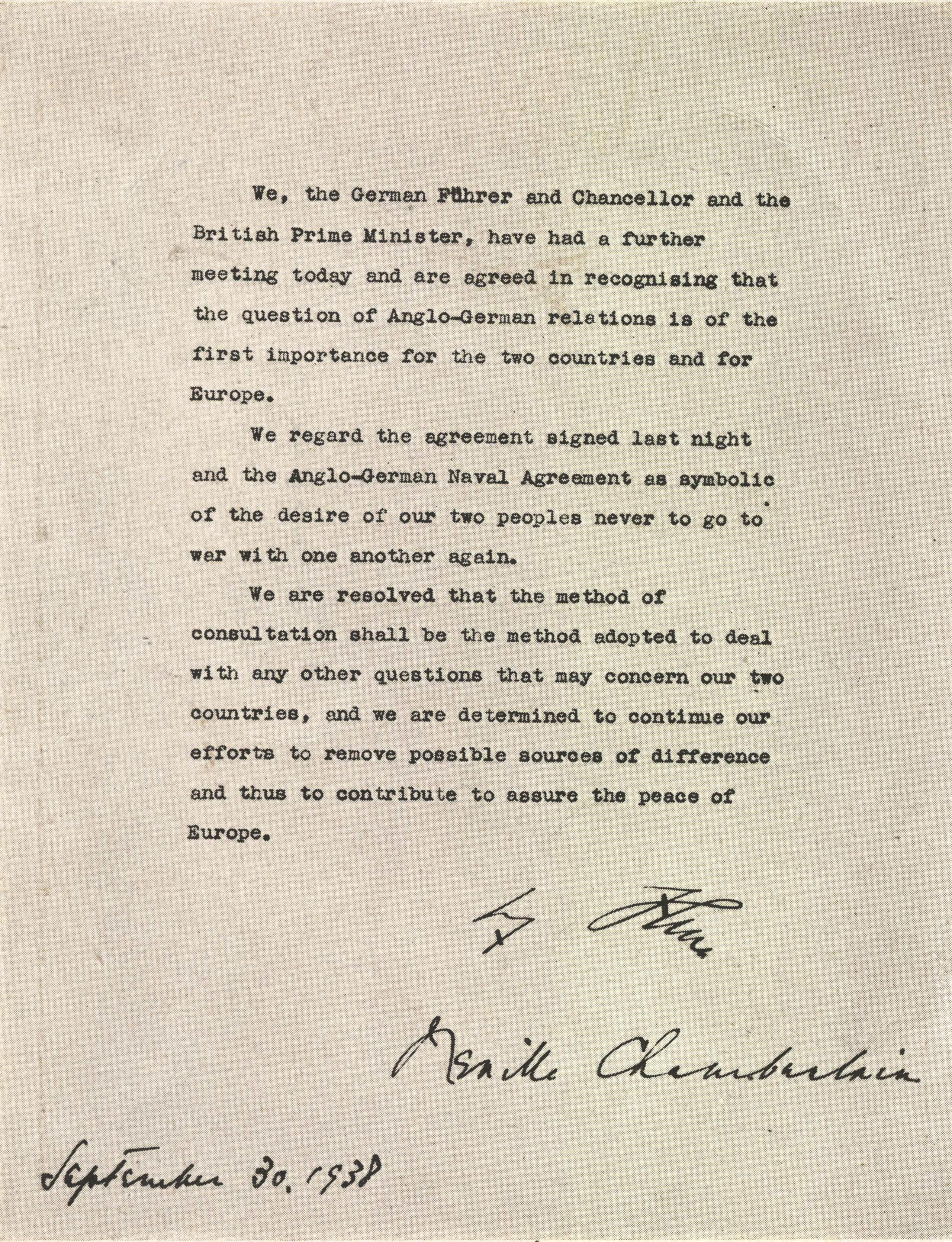

I like this item because it never fails to shock students when I show it to them during inductions on how to use archival material – not only because the idea of a British prime minister shaking hands and smiling with Hitler, who is wearing a swastika armband, seems so appalling, but because the Conservative Party chose to feature such a document within a Christmas card. But it also shows the danger of allowing hindsight to influence our interpretation of history. Chamberlain’s reputation has suffered ever since Munich because, as a policy, appeasement ultimately failed to prevent the Second World War. But at the time, there was widespread support in the country for avoiding war at all costs, even to the point of allowing Czechoslovakia to be sacrificed. On his return, Chamberlain received thousands of gifts from a grateful public, including a silver dinner service. Consideration was even given to calling a general election in order to reap the benefit of Chamberlain’s popularity, and the Conservatives would undoubtedly have won a landslide.
Historians will continue to debate appeasement and Chamberlain’s role in it, and whether, perhaps, he was right to pursue it, merely to buy Britain enough time to re-arm and prepare for War. The Christmas card is such a small document, but it represents so much controversy, not to mention a blatant example by a political party attempting to make political capital out of a crisis situation.
The postcard can be found in the Weston Library’s Conservative Party Archive, Shelfmark: CRD/D/3/1/3
Stuart Ackland, Bodleian Map Room: Clark’s Chart of the World
Population maps such as this are, in the field of cartography, a relatively recent product, with the first known examples being published in the early 1800s. Early maps would give tables showing population figures, this example from 1822 has one that is Christian only and colours parts of the World depending on the ‘Degrees of Civilization’.

Clark’s Chart of the World, 2nd ed, 1822. (E) B1 (151)
On the map’s coloured coded key the list of degrees of civilisations range from: ‘Savage’, ‘Barbarians’, ‘Half Civilised’, ‘Civilized’ and ‘Enlightened’. In its religion section, the map only covers Christianity (and its various denominations) and ‘Mahomedan’, with all others being listed as ‘Pagan’. The map provides a fascinating insight into British society’s views on the wider world in the 1800s.

Inset of Clark’s Map showing population table and legend
For other posts about the Bodleian’s maps see the The Bodleian Map Room blog.
Matthew Neely, Senior Archivist: The two Presidents
My favourite item is an entry for 11 June 1961 from Macmillan’s diary. In June 1961, John F. Kennedy arrived in London on his first visit as US President. Although somewhat apprehensive of the new youthful President, Macmillan and Kennedy soon forged a close relationship. Macmillan took the opportunity to record in his diary a comparison of his relationships with Eisenhower and Kennedy, contrasting the instinctive style of Eisenhower with the intellectually inquisitive approach of Kennedy.

Cecil Stoughton. White House Photographs. John F. Kennedy Presidential Library and Museum, Boston
The entry can be found in the Catalogue of the papers of Harold Macmillan, 1889-1987 Shelfmark: Macmillan dep. d. 42, fol. 69
We look forward to seeing everyone at the Bodleian’s stand for History Day 2018 at Senate House, London on the 27th of March 2018 where we will be sharing information about our collections. Make sure to come and say hello.
Co-edited by Carl Cooper and Ben Peirson-Smith.
